A recent survey by Voice of America Bangla has revealed that over half of Bangladeshis, about 53.6%, have a favorable opinion of India.
However, the same survey shows that 41.3% of people in Bangladesh hold negative views about their neighboring country.
The poll, which surveyed 1,000 people, also uncovered how Bangladeshis feel about India, Pakistan, and other nations.
India and Pakistan: Both Liked, but India Faces More Dislike
The survey, which ran from October 13 to 27, showed that both India and Pakistan have a fairly positive image in Bangladesh.
59% of those surveyed said they liked Pakistan, while 53.6% expressed positive feelings toward India.
However, when it comes to dislike, Pakistan fares better. Only 28.5% of Bangladeshis dislike Pakistan, while 41.3% have a negative view of India.
Interestingly, Bangladeshis are not too fond of Myanmar, with 59.1% of respondents rating it negatively.
This could be linked to the ongoing Rohingya refugee crisis, where over a million refugees fled Myanmar to Bangladesh in recent years.
Among other countries, the United States received the highest approval, with 68.4% of respondents liking the U.S. China, Russia, and the UK followed closely behind.
Religious Differences in Views on India and Pakistan
The survey also revealed some religious divides in how Bangladeshis view their neighbors.
Among Muslims, 44.2% said they disliked India, while only 4.2% of non-Muslims (Hindus, Christians, and Buddhists) shared this sentiment.
However, Muslims and non-Muslims both generally had positive views of both India and Pakistan.
For example, 50.7% of Muslim respondents liked India, compared to 90.1% of non-Muslim respondents. On the other hand, 60.1% of Muslims liked Pakistan, while 44.1% of non-Muslims shared that view.
Age Group Differences: Young People Lean Toward Pakistan
Age also plays a role in shaping opinions. Among younger people (aged 18-34), 62.1% favored Pakistan, while 47.8% liked India.
In contrast, people aged 35 and above leaned more toward India, with 59.8% expressing a favorable opinion, compared to 55.7% for Pakistan.
Gender Differences: Women Favor India, Men Prefer Pakistan
The survey also uncovered a slight gender difference in opinions. Among men, 64.4% favored Pakistan, while 52% liked India.
But among women, 55.3% liked India, compared to 53.2% who liked Pakistan.
However, both men and women showed similar levels of dislike for India (around 40%), but fewer people of either gender expressed dislike for Pakistan.
Urban vs. Rural Views: Similar Trends, but Slightly Different Numbers
There was little difference in opinion between urban and rural respondents.
In cities, 50.4% liked India, while 63.9% liked Pakistan. In rural areas, 54.7% liked India, and 57.3% liked Pakistan.
Both groups showed similar levels of dislike for both countries.
India’s Role in Bangladesh’s Internal Politics
The survey results point to a broader political context. While India and Pakistan received similar scores for being liked, India faced more negative opinions.
Many believe this is because of India’s involvement in Bangladesh’s domestic politics. Following political turmoil in Bangladesh in August, where Prime Minister Sheikh Hasina’s government fell, anti-India sentiments have grown.
Various groups have expressed frustration with India’s political alignment with Hasina’s party, the Awami League.
Dr. Muhammad Yunus, leader of the interim government, has repeatedly criticized India for relying too heavily on the Awami League and not recognizing other political groups in Bangladesh.
Yunus has suggested that India should see Bangladesh as a neighbor, not just as a country aligned with one political party.
Sheikh Hasina’s Visit to India Sparks Controversy
Sheikh Hasina`s extended stay in India since August has also stirred controversy in Bangladesh.
Some locals see her actions as interfering in Bangladesh’s internal affairs, as reports suggest she has been directing Awami League leaders from abroad.
Dr. Yunus has expressed discomfort with Hasina’s actions, calling them "unfriendly."
The “Bangladesh Card” in Indian Politics
The survey findings also suggest that negative opinions toward India are not a recent development.
For years, certain Indian politicians, particularly those from the ruling Bharatiya Janata Party (BJP), have used Bangladesh-related issues, like illegal immigration, as election tools.
This rhetoric has sometimes caused diplomatic tensions between the two countries.
Recently, India’s Home Minister Amit Shah made controversial remarks about Bangladeshis in India, threatening to hang “Bangladeshi infiltrators.” Bangladesh’s Foreign Ministry strongly condemned his statement, calling it harmful to bilateral relations.
Border Tensions: The Issue of Border Killings
One of the most sensitive issues between Bangladesh and India is the frequent border killings.
Indian Border Security Force (BSF) personnel often shoot people suspected of illegal crossing, leading to fatalities.
The most infamous case was the killing of a Bangladeshi girl, Felani, in 2011.
The incident has continued to fuel resentment in Bangladesh, as numerous border deaths have occurred since then.
Dr. Yunus acknowledged that these killings are not necessarily intentional, but they continue to strain relations.
He emphasized the importance of addressing the root causes of such incidents.
Water Dispute: Teesta River Still a Sticking Point
Another unresolved issue is the sharing of water from the Teesta River.
Although Bangladesh and India share 54 rivers, only one, the Ganges, has a formal water-sharing agreement.
Bangladesh has been pushing for an agreement on the Teesta since 2010, but the issue remains stalled due to opposition from West Bengal’s Chief Minister, Mamata Banerjee.
The lack of progress on this issue has led to criticism of the current government, especially after Prime Minister Hasina’s visit to India in June, where no progress was made on Teesta.
Pakistan-Bangladesh Relations Improving
In contrast to India, relations between Bangladesh and Pakistan have improved significantly under the interim government.
Unlike the previous government, which demanded an apology from Pakistan for the 1971 war crimes, Dr. Yunus’s government has not made such a demand.
In September, Pakistan’s Ambassador to Bangladesh announced that Pakistan would offer visa-free access to citizens of 122 countries, including Bangladesh.
There are also discussions about resuming direct flights between the two countries, which were suspended in 2018.
Additionally, a direct cargo ship from Pakistan arrived in Bangladesh in November, marking a significant step forward in bilateral trade.
U.S. Relations: Bangladeshis Like America
The survey also explored Bangladeshis` views on the United States, revealing that 68.4% of respondents liked America.
Among them, 33.2% expressed strong approval, while 35.2% were moderately positive. On the flip side, 7.7% expressed dislike for the U.S., and 12.3% strongly disliked it.
In summary, the survey paints a complex picture of Bangladesh`s attitudes toward its neighbors.
While India remains a key partner in many ways, issues like politics, border tensions, and water-sharing disputes continue to shape public opinion.
Meanwhile, relations with Pakistan appear to be on the mend, offering a shift in regional dynamics.


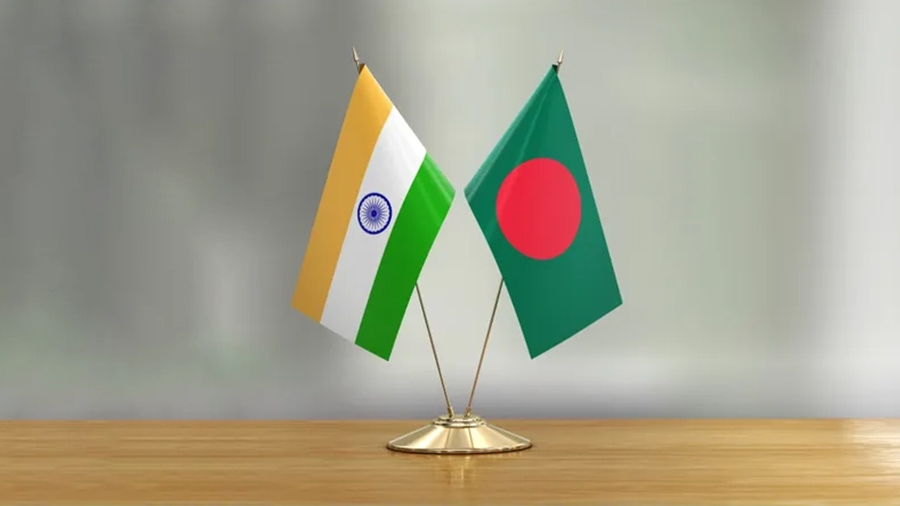

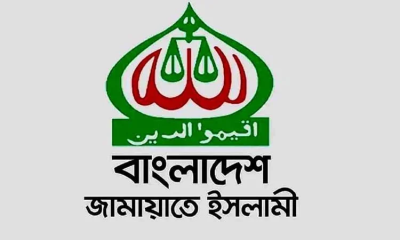
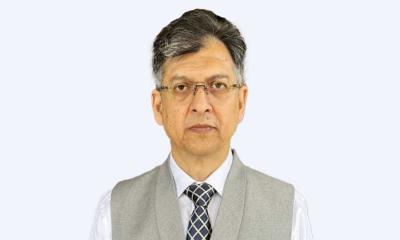
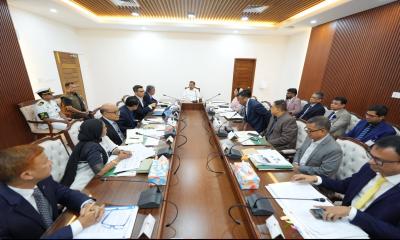
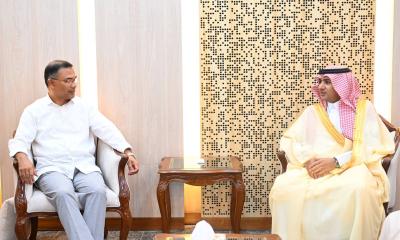


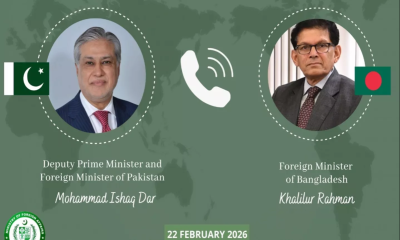



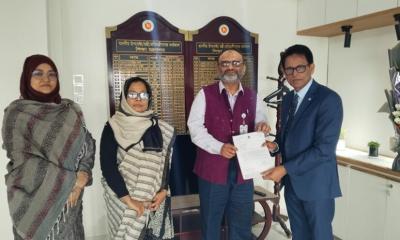

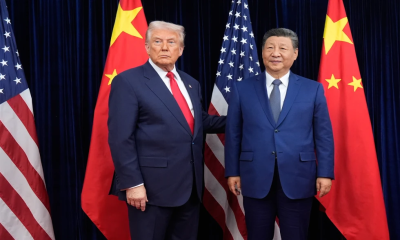
-20260222063838.webp)















